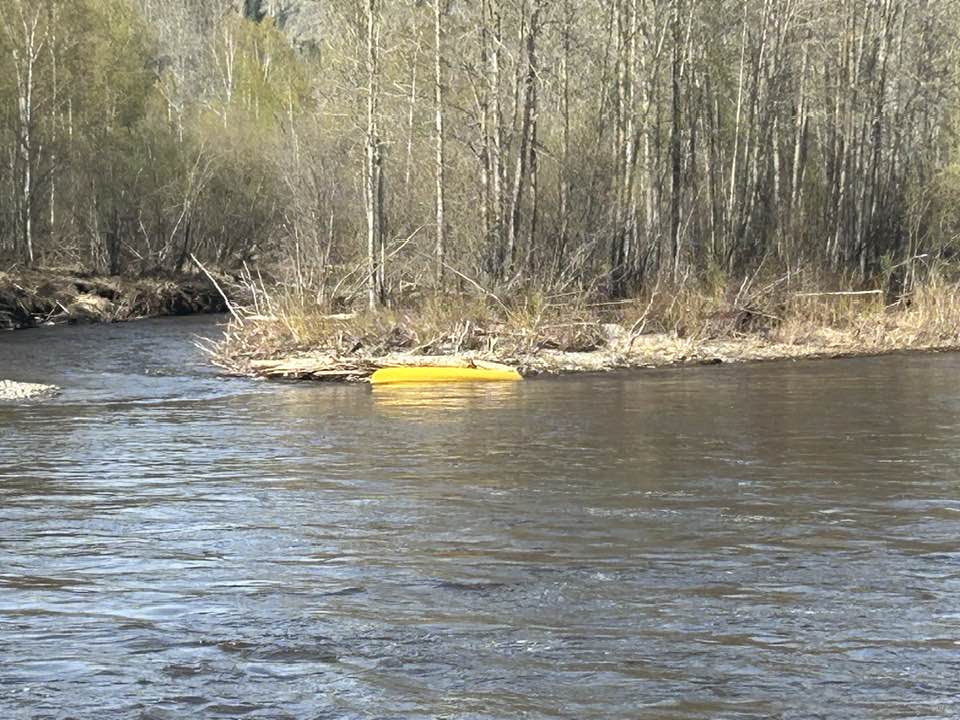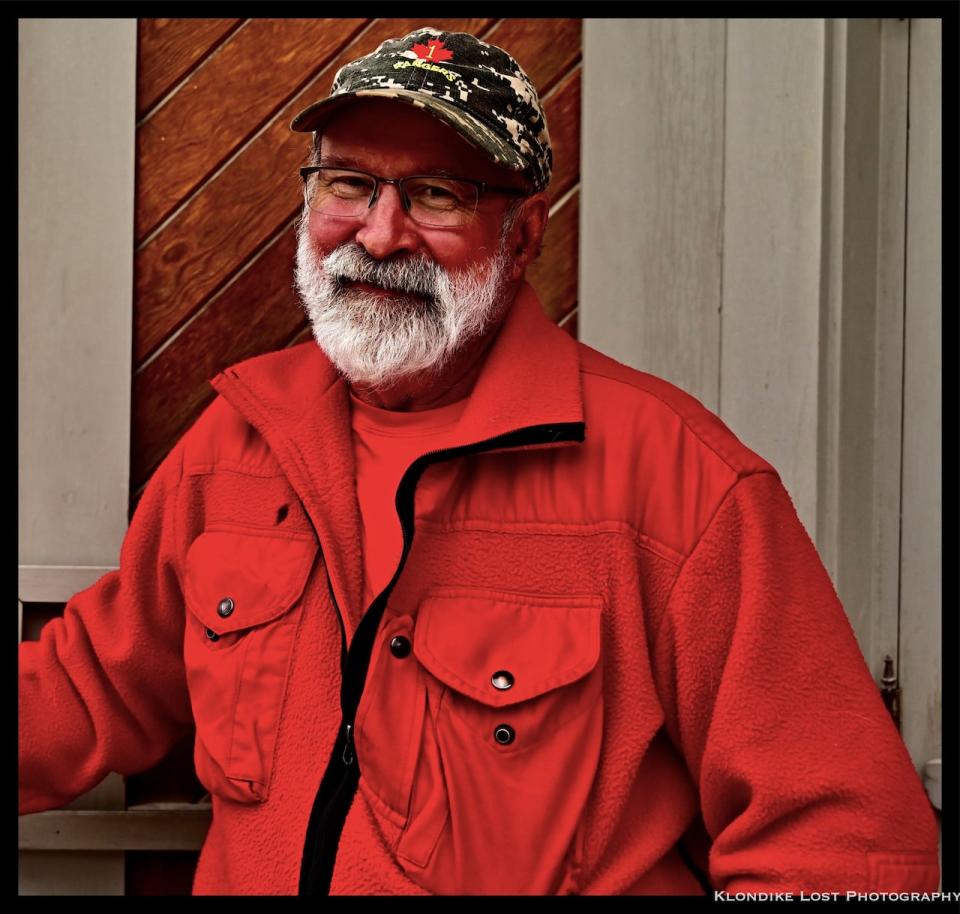2 capsized canoes on Yukon's Klondike River in recent days prompt warning to paddlers

It's only been a month since ice jams filled the Klondike River, and people are already canoeing down it — and some are getting into trouble.
That's prompted local emergency officials to urge paddlers to use caution, and common sense, particularly at this time of year.
This month, there have been reports of two separate incidents involving capsized canoes on the Klondike River, according to John Mitchell of Dawson City's volunteer search and rescue team.
"The first one, the RCMP contacted me [saying] there had been a canoe spotted floating down the Klondike under the bridge," Mitchell said.
"It sounded like a canoe had been launched the day before from up in the Rock Creek area, which gave us concern — because then you're getting into a situation where people have been out in the bush overnight."
Mitchell said he then spotted the canoe snagged on a logjam further downriver from the bridge where it was first spotted. Later that day, before any sort of search was launched, Mitchell saw the same canoe travelling down the river with the owner inside.

John Mitchell is a member of Dawson City's volunteer search and rescue. He's urging people to use caution and common sense when paddling the Klondike or any other river in the Yukon. (Jon Wilkie)
"I went and talked to the guy," he said. "He never thought to close the loop on it and let people know [he was safe]... If he had taken the time to phone the cops and say, 'hey, I flipped my canoe, yeah we're OK," then they [RCMP] could have fielded it instead of treating it as a series of alarms."
Mitchell said the second incident happened on Monday while a canoeist was paddling near the Dempster Corner. Mitchell explained that luckily the man was close to the highway side of the river when he capsized, enabling him to swim to safety. Unfortunately, the paddler's canoe and gear were carried off downstream.
Mitchell said the canoe was spotted a few days later and its owner was notified.
Prepare before paddling
Mitchell said the Klondike River is unpredictable and the difficulty in navigating it is often "under-appreciated."
He said the river contains logjams, and swift channels that could pose risks to even the most experienced paddler.
Capsizing isn't the only risk that comes with paddling the Klondike or any other river, according to Mitchell.
"If you end up on an island, or on the wrong side of the river, you're going to be stranded," he said.
"In reality, for searching on that particular river, the channels are so graded that canoers can get into a channel from the top that we can't get into from the bottom, and get stuck."
Mitchell said the most important thing for people who plan to travel along the Yukon's river systems is to prepare themselves for any type of emergency that could happen.
Mitchell said wearing a personal floatation device (PFD) at all times is rule number one. He said notifying someone of where you're going, when you're going, and when you're expected to return also helps search and rescue if they're deployed to find you.
"The other thing you have to be looking at is, be prepared to be there overnight," he said. "If you have a good PFD, put in a little bit of survival stuff in there. Throw in some bug dope, because if you get stranded you're going to get eaten alive."
Mitchell said too many people have lost their lives after falling into one of Yukon's many rivers. He said accidents can't always be avoided, but being prepared for one can save lives.

